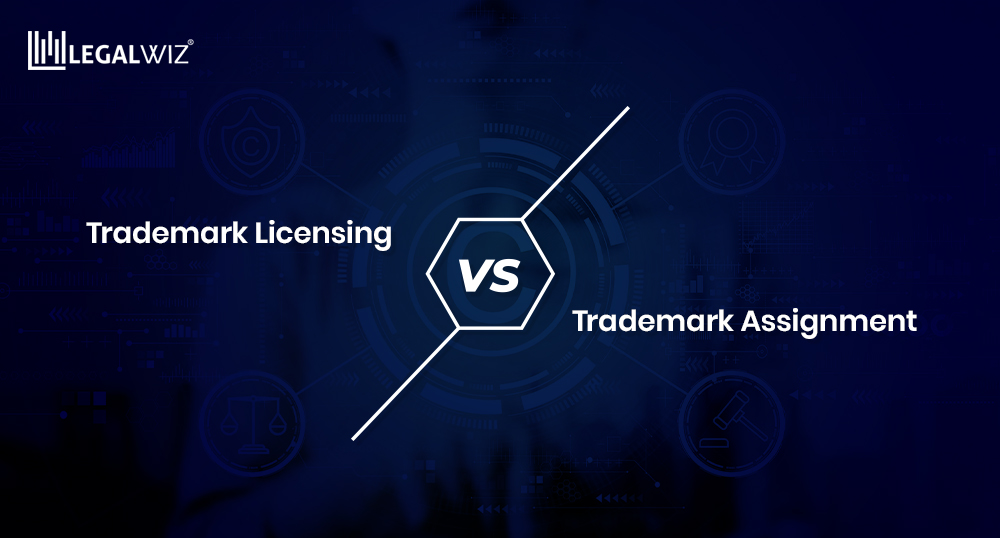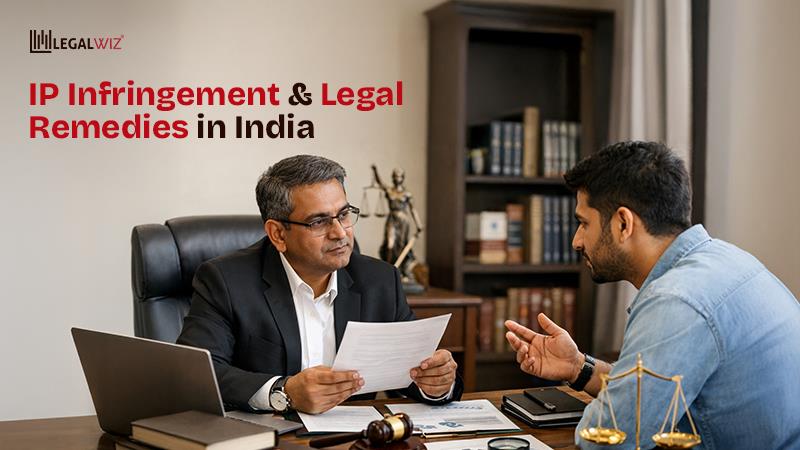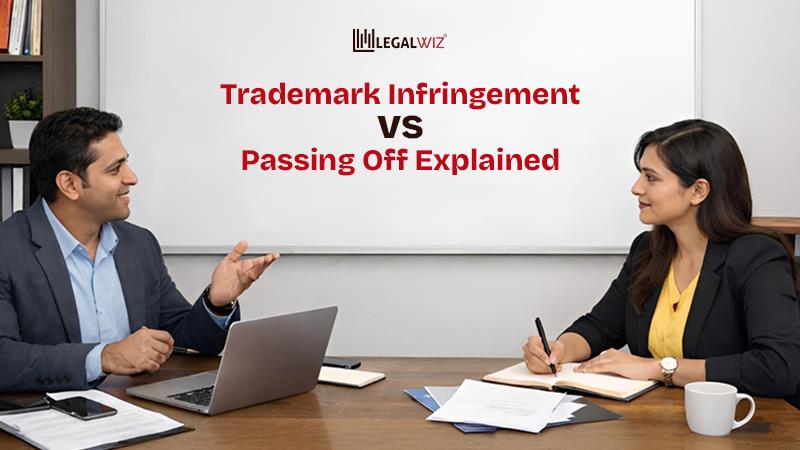Trademark Licensing vs Assignment: Know the Difference
Trademark Assignment is a change in the ownership of a registered trademark. Whereas, trademark licensing is transfer of certain rights (In a restricted manner) of a registered trademark while retaining the ownership over the trademark.
Let us have a detailed look at what these two terminologies mean and how they are different from each other.
Also Read: Understanding Trademark & its Registration Process in India
Trademark licensing
Trademarks are important business assets that offer protection to your brand. Licensing your trademark can benefit your business strategy by expanding the reach of your brand to new markets and territories. In licensing of trademark, owner of a particular trademark can give the right to use the trademark to a third party in a restricted manner and in return for a royalty, while retaining the ownership with himself/herself.
Benefits of trademark licensing
- It helps in expanding the brand reach of the said mark.
- It can have a positive impact on business life and operations.
- Through licensing, the mark tends to become more popular and well-known.
- The workload of the company reduces
How to register for trademark licensing?
- Have a License Agreement in writing;
- Apply jointly with the intended Licensee for License registration to the Registrar of trademarks (Section-49) in form TM-U;
- Submit an Affidavit affirmed by the owner mentioning the following: the details of the License, the relationship between the parties, the period of use, the applicable good/services;
- Pay the government fee of Rs 4500 for each trademark to be licensed under each class;
Application for registration is required to be made within 6 months from the date of effective date of the Agreement signed between the parties.
Trademark Assignment
As per the Trade Mark Act, 1999, the person entered in the register of trademark, as the proprietor of a trademark, shall have the power to assign a trademark and to give an effectual receipt of for any consideration for such Assignment. Assignment is complete transfer of ownership by the owner of the trademark to a third party.
There are two types of trademark assignments:
1. Assignment without goodwill – the assignor restricts the assignee with the condition that the assignee cannot use the trademark assigned with the goods and services already in use by the assignor.
For example, the brand “KL” relating to his stationery product sells his brand to X. He will not use the mark “KL” concerning stationery products but can use this brand for any other products being manufactured.
2. Assignment with goodwill – the assignor assigns the rights and value of the trademark associated with the product is also transferred to the assignee.
For example, the brand “KL” relating to his stationery products sells his brand to X. He can use the brand concerning stationery products or any other products he wants to manufacture.
Benefits of Trademark Assignment
- Every Assignment of a trademark is entered in the registry records and acts as a proof of ownership of the trademark.
- It takes less time than registering a new brand name.
- Both parties are advantageous as the assignor gets a reasonable amount for the brand name. The assignee will enjoy the already established brand while known in the market.
How to register for Trademark Assignment
- The prospective assignee must apply for the registration of Assignment before the Trademark Registration Office.
- Once the Registrar is satisfied, he will enter the details of the assignee as the owner of the trademark of goods and services assigned to him.
- If the parties dispute the validity of the transfer, the Registrar may refuse to register the transfer until the competent authority determines the parties’ rights.
- The trademark registrar will process the trademark assignment registration application within three months from the date of receipt of the application.
- Where the trademark registry is not satisfied with the integrity of any statement or any documents provided by the applicant it may request the applicant to provide additional proof.
- When the Registrar is pleased with the documentation, it will officially transfer the trademark from the original to the new owner.
When the Registrar allows the registration, He will enter the following data into the registry.
Also Read: A simplified guide on process of trademark search
- Name and address of the assignee;
- Date of Assignment;
- Description of the right to be transferred (where Trademark Rights are involved);
- Basis of the Assignment;
- Date of registration.
Trademark Assignment vs. Trademark Licensing
- Assignment of a trademark is a transfer in the ownership of the trademark registration. Whereas in licensing, the ownership and proprietary rights of the trademark continue to remain with the original owner, but only a few restricted rights to use the brand are given to the third party.
- The assignment deed must be compulsorily in writing. Licensing isn’t required to be in writing.
- An assignment is entirely or partly; a license gives the rights for a particular period of your time.
- An assignment isn’t time-sensitive; the ownership is gone. Licensing is barely for a limited period of your time.
Conclusion
Both Assignment and Licensing of trademarks are significant issues, and proper strategizing may open aspects of opportunities for all, a licensor, a licensee, an assignor, and an assignee. Trademark licensing and Trademark Assignment involves developing a brand and its use. All these exist in the hands of the proprietor and are effective methods to manage the same.

Akansha Tripathi
Akansha is a 3rd-year B.A. L.L.B (H) student, pursuing her summer internship at LegalWiz.in with an aim to make an impactful career in the filed of business compliance and corporate law. The subject of law fascinates her extensively.







